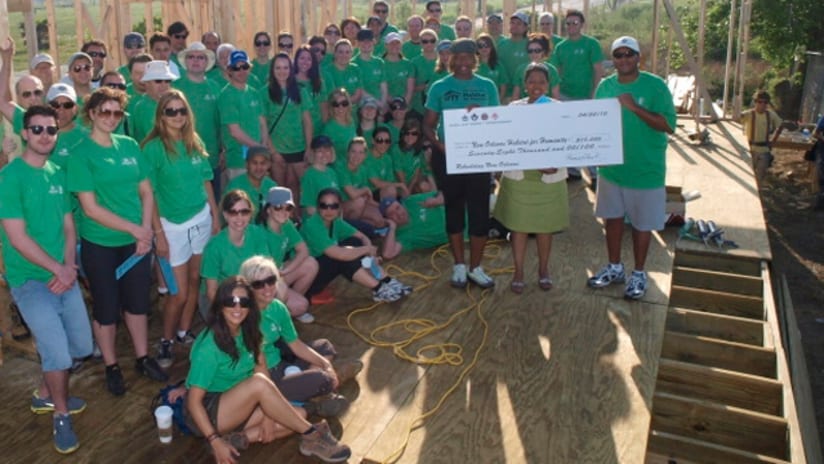Doing good is not about gaining approval or garnering thanks. Those things are the by-products of good works, not the rewards.
Do good for no other reason than to do good.
That lesson was reinforced this week with criticism of administrative expenditures for Team Up, a joint charity encompassing all four MLSE teams. Since 1996, MLSE has generated close to $30 million for community initiatives that would have fallen to the taxpayer or, more likely, not have been undertaken at all.
The criticisms came on a week where MLSE employees were coming back from a home build in New Orleans. This week, many worked on refurbishing a city-owned rink in Agincourt. MLSE, as every employee knows, underwrites civic engagement by paying workers volunteering in the community.
The issue of assessing charities solely by measuring their administration percentage appears beguilingly simple. Lower administration infers a more efficient, streamlined organization.
Team Up’s 55 per cent share of administrative expense has indeed been swelled by fund-raising dinners and golf tourneys with high overhead. It is a policy the administrators of the Fund are dissecting. But as a sports organization, the best way to generate money has always involved bringing players and patrons together. The more ornate the setting, meal and prizing, the higher the ticket value. If a charity realizes a better bottom line with a gala than with a car wash, who is the real winner?
“Stop obsessing about overhead,” said American CEO Nancy Lublin about charities. “You can’t assess an organization on one statistic. Instead, focus on effectiveness. That’s a harder story to tell and a trickier thing to measure.”
The only real measurement is in the good works performed. The MLSE fundraising that preceded Team Up, along with support from corporate partners and government, built or refurbished 13 outdoor rinks in the GTA, six basketball surfaces and three soccer pitches. Moreover, there is no possible way to measure the time gladly given over by open-hearted employees. Lublin is dead right, the bottom line of a charity is indeed a tricky thing to pin down.
So don’t.
A nail driven into the boards at a rink build or an electrical panel installed in a developing part of the city speaks for itself. Good works always do.
“No good deed goes unpunished,” a cynic once noted. Maybe so, but another axiom is just as true: “virtue is its own reward.”
The Act Of Doing Good

